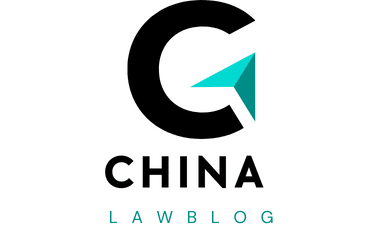chinalawblog
Automotive
How to Choose the Right Carbon Fiber Hood for Weight Savings on a Dodge Viper?
March 22, 2024
As car enthusiasts, you are always on the hunt for that extra bit of performance edge. And for those of you who’re Dodge Viper owners,...
Business
What Are the Steps to Implementing a Circular Economy Business Model in the UK?
March 22, 2024
The world is rapidly recognising the value of shifting from a linear to a circular economy. A business model based on the circular economy drastically...
Cooking
What’s the Technique for Perfect Slow-Cooked Brisket in a Dutch Oven?
March 22, 2024
Brisket, the beloved cut of beef that barbecue enthusiasts revere, can be a tricky meat to master. It’s a challenging cut that requires careful attention...
Read more
How to Create a Gourmet Steak Tartare with Capers and Quail Egg?
March 22, 2024
Creating a gourmet meal at home can be an exciting adventure, whether you’re cooking for a special occasion, an intimate dinner, or merely trying out...
Read more
What’s the Key to Crafting a Traditional Polish Pierogi from Scratch?
March 22, 2024
Pierogi, a quintessential Polish dish, is a type of dumpling that is as versatile as it is delicious. At its most basic, it’s a simple,...
Read more
Can You Prepare a Gourmet English Trifle with Homemade Ladyfingers?
March 22, 2024
Trifles have long been a quintessential dessert in English cuisine, known for their layers of sponge cake, fruit, custard, and whipped cream. But have you...
Read more
What’s the Secret to Baking Perfectly Chewy Bagels with a Shiny Crust?
March 22, 2024
Baking the perfect bagel is a quest many home bakers undertake, hoping to recreate the chewy texture, the tantalizing aroma, and the shiny, golden-brown crust...
Read more
finance & real estate
What Strategies Can Minimize the Impact of Construction Noise in Urban Real Estate Projects?
March 22, 2024
health
home & living
How to Create an Inviting Reading Space for Kids with Limited Room?
March 22, 2024
Creating an inviting and cozy reading space for children in a limited space is a challenge parents often encounter. But it’s not impossible. With a...
News
What’s the Impact of Blockchain on Enhancing Music Copyright Management?
March 22, 2024
In the world of music, copyrights are an essential commodity. They ensure that artists are compensated for their creativity and hard work. However, the traditional...
Pets
What’s the Best Way to Introduce a Dog to a Home with a Resident Bird?
March 22, 2024
Introducing a new pet to a home, particularly a dog, is often a time of excitement and jubilation. However, the introduction can quickly become precarious...
Read more
How can you create a cat-proofed balcony space in an apartment?
March 22, 2024
A balcony is more than just an outdoor space attached to your apartment. For pet owners, especially cat parents, it can provide a refreshing, open...
Read more
What are the essential considerations for setting up a hedgehog’s habitat?
March 22, 2024
Hedgehogs, with their spiky coats and inquisitive nature, are becoming increasingly popular as pets. However, unlike traditional domesticated animals like cats or dogs, hedgehogs require...
Read more
How to choose the correct claw trimmer for your specific cat breed?
March 22, 2024
Cats, much like humans, require regular grooming and upkeep. Just as we need a good pair of scissors for a haircut, cats need a suitable...
Read more
How to craft a custom nutrition plan for a dog with liver disease?
March 22, 2024
To ensure your pet’s optimum health, providing a well-balanced, nutritional diet is crucial. When the pet in question is a dog with liver disease, the...
Read more
Sports
Technology
woman / fashion
